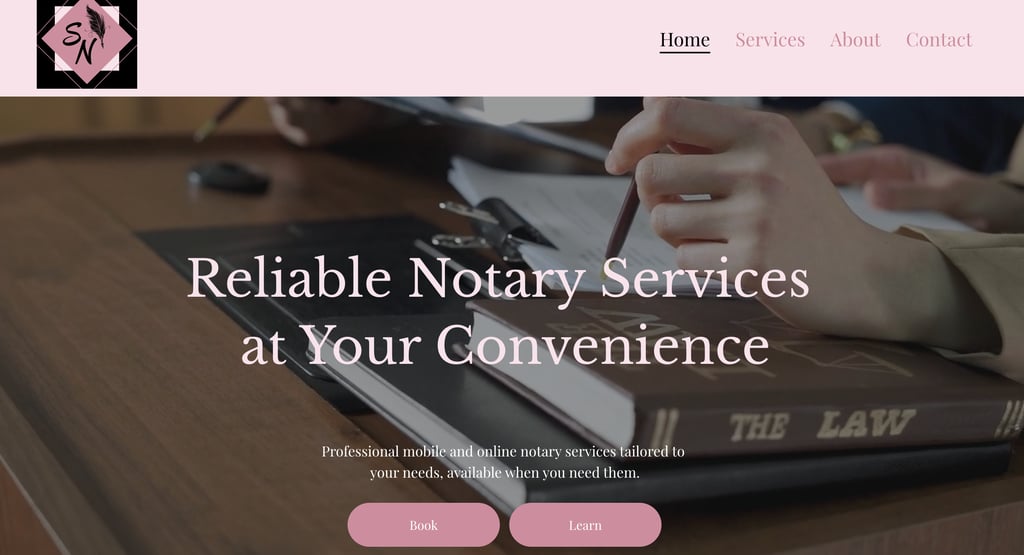The Importance of a Website
Why is a website so important, and what value can you get out of having a well-developed website?
10/17/20252 min read


The Essential Qualities of a Good Website (and Why They Matter More Than Ever)
Your website is your first handshake with the world. Whether you’re selling, storytelling, or showcasing your expertise, a good website does more than look pretty—it performs.
And performance means different things depending on your goals. Some sites exist to sell. Others exist to serve. The best ones do both seamlessly.
1. Clear Purpose
Every page should have a job. Visitors shouldn’t have to guess what you do or why it matters. Within seconds, your site should answer:
Who you are
What you offer
How someone can take the next step
If your site’s goal is sales, the path to purchase should be frictionless—think simple checkout, clear product info, and trust badges.
If it’s a service-based site, focus on guiding visitors toward connection: consultations, quote requests, or booking links. Either way, clarity converts. Confusion doesn’t.
2. Strong Branding
Your brand identity is what makes people feel something about your business before they’ve read a word. Consistency across your logo, colors, voice, and imagery builds recognition—and recognition builds trust.
For product sites, brand emotion drives impulse buys. For service providers, it builds long-term relationships.
3. User-Friendly Design
People don’t “read” websites; they scan them. Clean layout, intuitive navigation, and a logical page flow help users find what they need fast.
For e-commerce, this means easy category filters, minimal clicks to checkout, and visible cart icons.
For service businesses, design should gently lead to a form, calendar, or contact point—no hunting required.
4. Mobile Optimization
More than half of all web traffic now comes from phones. If your site isn’t mobile-friendly, you’re losing attention (and credibility). Responsive design ensures your site looks and works beautifully on any screen—whether it’s someone scrolling for a gift or booking a consultation during their commute.
5. Fast Load Time
Speed equals professionalism. Slow sites lose visitors, period.
For sales-focused sites, speed can directly impact revenue.
For service providers, it’s about perceived competence—no one wants to hire someone with a laggy website.
6. Compelling Copy
Design draws people in; copy keeps them there.
If you sell products, speak to desire: how this item improves life, saves time, or solves a problem.
If you offer services, speak to transformation: what changes for your clients when they choose you.
Either way, your copy should be confident, conversational, and clear about the next step.
7. Search Engine Optimization (SEO)
SEO ensures the right people actually find your site.
For product-based sites: focus on product keywords, descriptions, and metadata.
For service-based sites: blog posts, location-based keywords, and client testimonials boost authority.
Without SEO, you’re basically whispering into the void.
8. Trust Signals
People hesitate online—your job is to remove that hesitation.
For sales sites, this could be reviews, return policies, or secure payment icons.
For service sites, testimonials, case studies, and clear credentials make you more hireable.
9. Analytics & Updates
Your site isn’t a one-time project; it’s a living asset.
Track what people click, where they drop off, and which pages convert best.
Sales sites should constantly optimize for conversions.
Service sites should evolve with your offerings, pricing, and audience needs.
The Bottom Line
A great website doesn’t just look good—it works hard behind the scenes. Whether you’re selling a product or offering a service, the same rule applies:
Make it easy for people to understand you, trust you, and take action.
That’s the quiet magic of a site that actually does its job.
